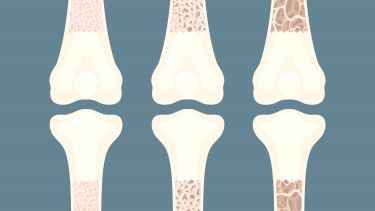How do appeals to participate in a biomedical project ŌĆō like donating blood, organs or stem cells ŌĆō work? What about when appeals engage people specifically because of their racial identity? As part of Wellcome-funded project , IŌĆÖve been asking these questions, exploring how racially minoritised stem cell donors are recruited onto the bone marrow stem cell registry.
Stem cells and race
Stem cell transplantations treat patients with blood disorders like leukaemia, but rely on donors and recipients being a genetic match. We inherit our genetic types from our biological parents, so if you donŌĆÖt have a full sibling whoŌĆÖs a match, the search moves to bone marrow registries ŌĆō databases of volunteer donors. Here, things get complicated: matches are more likely to be found not in families, now, but between patients and donors of similar ancestral backgrounds. Often, this is described in racial or ethnic terms (e.g., an notes ŌĆ£a personŌĆÖs best chance of finding a donor may be with someone of the same ethnic backgroundŌĆØ). Vitally, in the UK, because of the registryŌĆÖs composition, white people who require a donor from the registry have far better odds of finding one than people of racially minoritised backgrounds. Cue large amounts of recruitment work, often by small charities, to increase racially minoritised registration and improve these odds.
Recruitment is inherently creative
The charities I have worked with in this research are creative in a range of ways that look to draw people emotionally into the act of donor registration, often through storytelling. It might, for example, be through a speech on a stage at an event. One charity worker, a Black man whoŌĆÖs been recruiting since the 1990s, stand in front of a microphone and tells his audience at a Black African church in London that ŌĆ£time is running out for people, especially our peopleŌĆØ. I ask him about his approach, and he explains his effort ŌĆ£try to bring your audience with you to experience just a little bit of your painŌĆ” and gloryŌĆØ through telling stories of how patients have both died because they couldnŌĆÖt find a match, or had their life extended by a generous donor. I admit, when I watched him give this speech, I found myself getting choked up by the emotion in his voice and story. This was a feeling he generated in me through his creativity.
Recruitment frames engagement as ethical
By telling stories in this way, this work also frames registration as the right thing to do. ItŌĆÖs something that audiences ought to do because the action could save a life. As Dev Patel, the Slumdog Millionaire actor put it in he recorded for a campaign to recruit more donors for a young British South Asian boy (the video also tells this young boyŌĆÖs story), ŌĆ£there are hardly any donors of Asian origin in the UK, and that's why I'm talking to all you guys today. We need to raise awareness within our communities and around the worldŌĆØ. Registration is always a ŌĆ£needŌĆØ, something that people ought to do. In other words, registration is framed as an ethical imperative.
Recruitment as an ethico-racial imperative
What I find so sociologically interesting about this creative work isnŌĆÖt that donation is cast as an imperative. Arguably, all donor recruitment work (be it for stem cells or even money) relies on casting donation like this. Rather, itŌĆÖs the way race is invoked in tandem with this that is fascinating. Note that it was Dev Patel doing the asking in the video above; a famous British South Asian actor who endeavours to flag the mutual racial identity of both himself, the boy he hopes finds a match, and the audience he hopes is watching, as South Asian. Likewise, the recruiter asking African Caribbean people to register at events is himself Black, and his requests are collective. It is ŌĆ£our peopleŌĆØ whose time is running out. In this way, itŌĆÖs about both ethics and race ŌĆō something IŌĆÖve been thinking of as an ethico-racial imperative.
But we wouldnŌĆÖt expect a predominantly white audience to be engaged with in this way. Why? Perhaps some racially minoritised audiences might need considerably more convincing to engage with biomedical projects like tissue donation (for a range of reasons I wonŌĆÖt go into today beyond noting that mistrust and is as much an issue in the UK health context as the US). As policy in this area notes, an appeal is thought to be more trustworthy (and thus potentially more effective) if itŌĆÖs made by somebody whoŌĆÖs seen to share the audienceŌĆÖs minoritised background. This is where itŌĆÖs potentially valuable to emphasise mutual racial identity, as well as the ethical imperative.
So why is an ethico-racial imperative a useful idea to work with? Firstly, because it prompts us to think about why race becomes an important feature in biomedical appeals (think here about the issue of trust). But it also highlights who is engaged in this work. In short ŌĆō and IŌĆÖll leave you to think about this - why should it continually be racially minoritised people who make these appeals. IsnŌĆÖt addressing health inequity actually a collective onus borne by us all?
The arguments made in this blogpost are from an Open Access publication in the journal Biosocieties, that is free to read:




